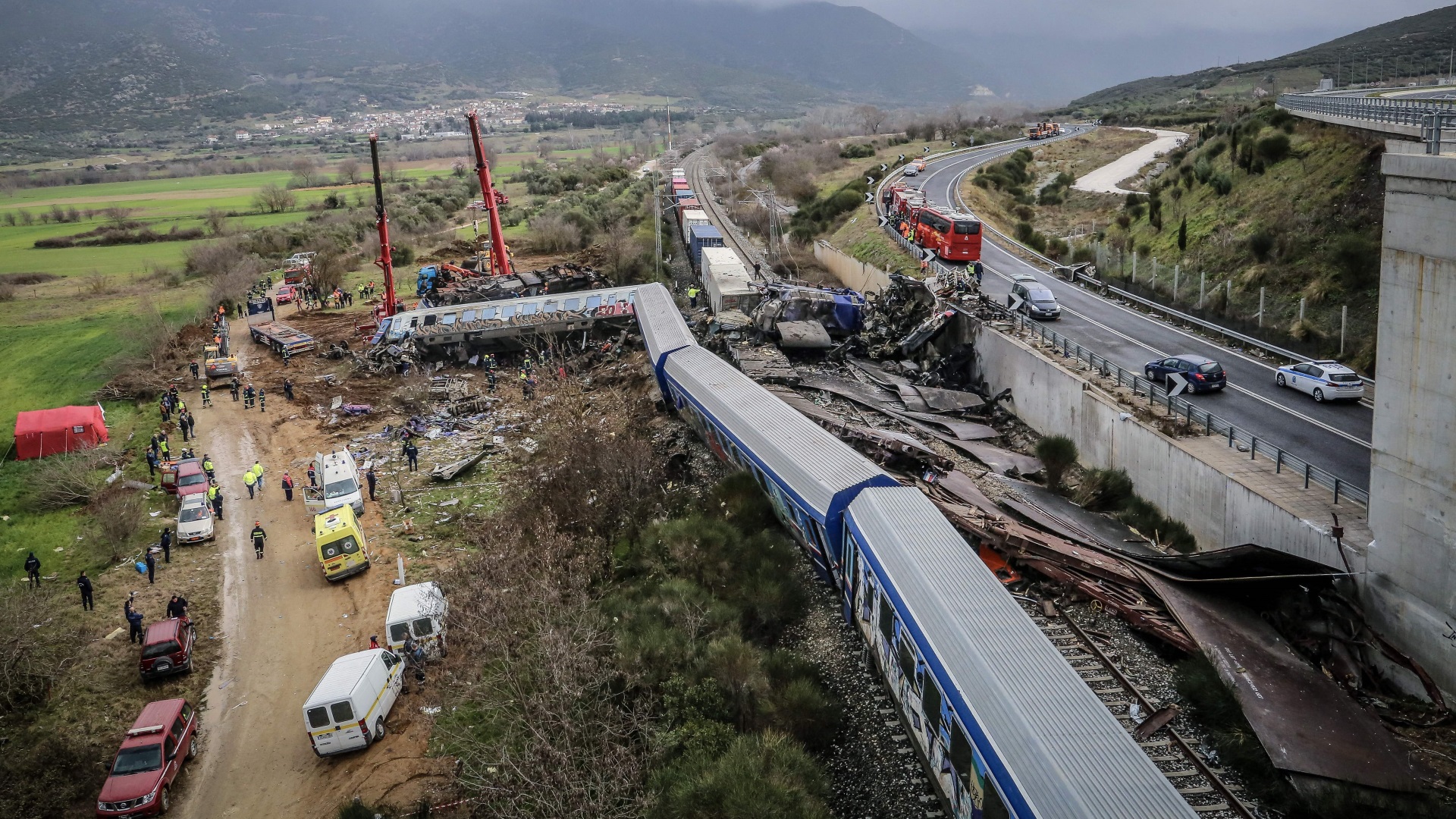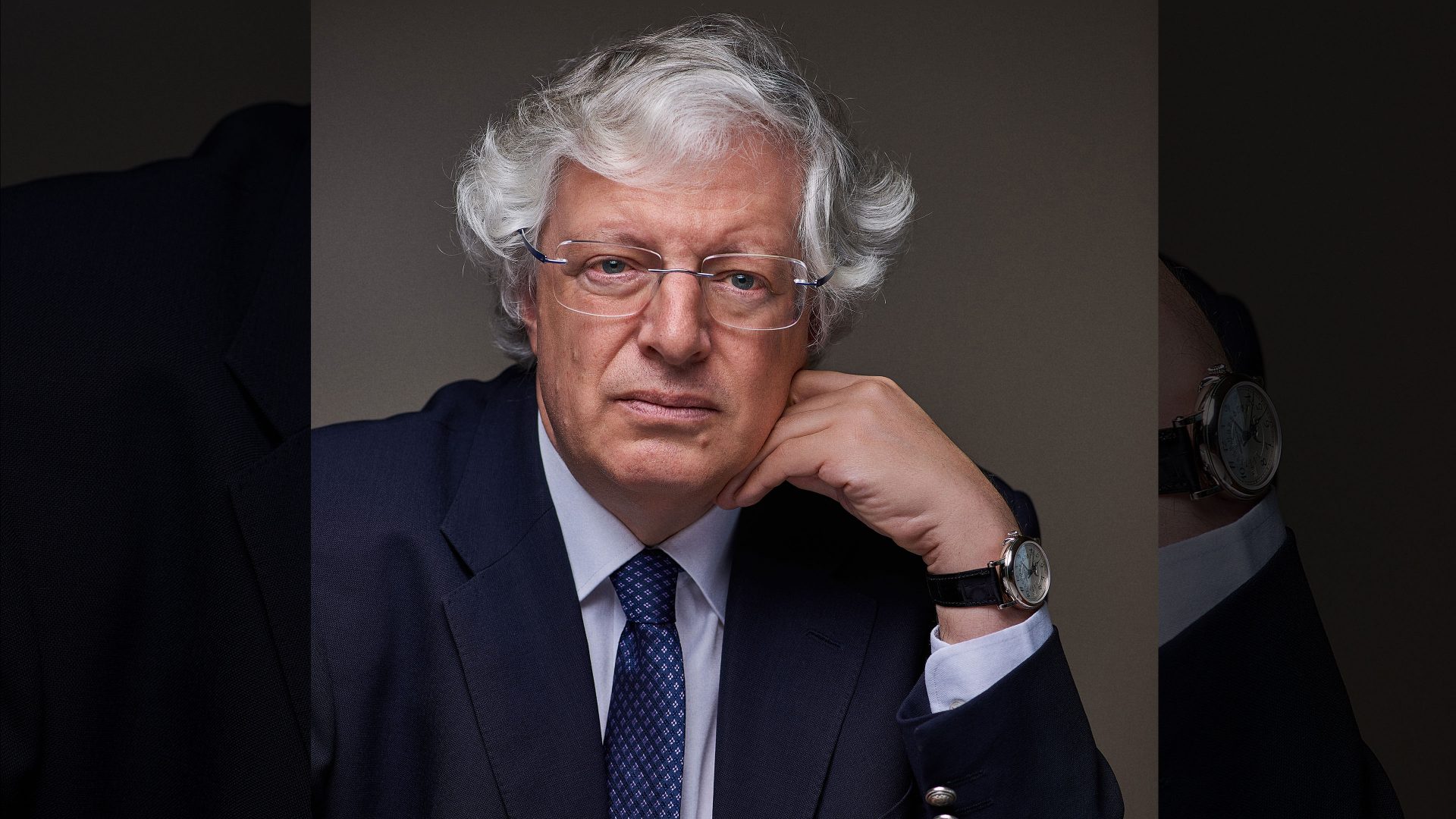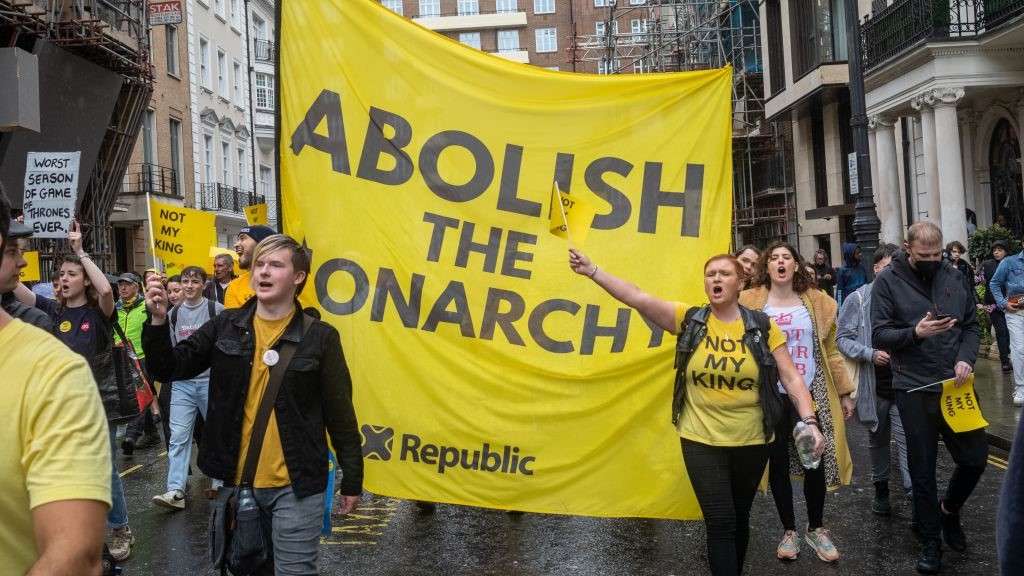When asked who would be the best prime minister among the leaders contesting the upcoming Greek general election, the most popular answer among voters was clear: “None of the above”.
As Greece goes to the polls on May 21 amid scandal, surveys show that the only thing the electorate agrees on is what it doesn’t want. It’s especially worrying for a country only just getting back on its feet after a decade in economic distress. And this is all amplified by a new system of proportional representation that favours collaboration over traditional single-party government, setting the stage for months of instability.
“There’s a great deal of confrontation and polarisation, and not a sense of political forces coming together to propose solutions for the country,” says Myrto Tsakatika, professor of politics at Glasgow University. “So conflict is what dominates.”
She added: “Greek democracy is also suffering from a loss of trust in politics and politicians. That hasn’t gone away since before the economic crisis. Now it’s reaching a high point again.”
Yet, on paper, it had looked so good. From the outside, Greece appeared to be on the rise under the leadership of Kyriakos Mitsotakis and his conservative New Democracy Party. Presiding over a seemingly stable, grown-up administration after years of chaos and Greece’s near-bankruptcy during the Eurozone crisis, Mitsotakis has been able to showcase a steady stream of improved economic numbers, including falling unemployment and faster growth than the Eurozone average. Under his premiership, Greece finally left the European Union’s restrictive fiscal surveillance mechanism, ending 12 harsh, divisive years of austerity-linked reforms imposed in return for £253bn in bailouts.
At the time, Mitsotakis announced “a new horizon filled with growth, unity and prosperity emerges for all… a different Greece”. He also cut a smooth figure internationally, where his ability to “talk Davos” instilled confidence. He appeared satisfyingly, publicly favoured by global leaders such as Joe Biden and Emmanuel Macron over Greece’s antagonistic neighbour, Turkey, on many issues from defence to energy exploration, angering Recep Tayyip Erdoğan into the sort of unhinged sabre-rattling that usefully raises the domestic standing of Greek conservatives. By swiftly sending help after devastating earthquakes hit Turkey in February, Mitsotakis also channelled the generous statesman.
But for many Greek voters, the reality is different. While good at a headline level, the numbers conceal weakness and misery underneath, making the economy, or more specifically the cost of living, the biggest election issue. Hardly surprising in a country that has lost around a quarter of its GDP in the last decade and is now buckling, like the rest of Europe, under the twin burdens of high energy prices from Russia’s invasion of Ukraine and the fallout from the pandemic. Worries over private debt and fears of home repossessions weigh heavily for many.
“There’s little doubt the economy is doing better than other EU countries and in the recent past – but if you claim too much there’s an inevitable backlash,” says Manos Matsaganis, head of the Greek and European Economy Observatory at Eliamep (Hellenic Foundation for European and Foreign Policy) in Athens. The government had miscalculated the effect of the good economic news on voters because of the disconnect between the figures and the way voters perceive economic conditions via jobs and wages, he adds.
Yes, unemployment dropped to 10.8% in January, from a peak of above 27% in 2013 – but some newly created jobs are worse than those lost in the crisis, nominal wages haven’t grown for over a decade, and real wages are falling.
Investment is also down, Matsaganis says, and what does come in is mostly linked to real estate and overhyped — the much-vaunted opening of a Pfizer headquarters in Thessaloniki loses some of its wow factor when you consider that Pfizer’s chief executive, Albert Bourla, is a Greek born in the city: “Most of the foreign investment, and domestic investment, too, is not of the kind that makes us think the Greek economy has raised its game.”
But Mitsotakis’s superficially competent image has been more spectacularly torn apart by a brace of scandals that exposed failings on many levels, from organisation to ethics. In February, 57 people, including many students, died in Greece’s worst-ever train crash. It brought tens of thousands of students and labour unions on to the streets, shouting “murderers” in protest at the state’s neglect of the rail network. Police reacted violently, making the situation worse. The national police chief was sacked amid a public uproar. The backlash against the Mitsotakis administration grew as his polling numbers dropped over the lack of safeguards, the botched use of manual signalling and the flawed response.
The opposition hasn’t impressed either. The social democratic Pasok, the once dominant party of government, proposed renationalising the rolling stock even though the accident was caused by signalling.
Pasok’s spectacular demise to near-irrelevance spawned the term Pasokification to denote Europe’s recent left wing collapse, and it is third in the polls behind New Democracy and the left wing Syriza. Nevertheless it had been expected to be kingmaker this time.
That is now in doubt. Theoretically, Pasok could help Mitsotakis to a second term by agreeing to an alliance. But that was before it emerged that Greek intelligence had tapped the mobile of Pasok’s leader, Nikos Androulakis, as part of a big espionage scandal that exploded last summer, claiming the scalps of Greece’s national intelligence chief and the government’s general secretary, Grigoris Dimitriadis, Mitsotakis’s nephew.
Androulakis was furious, railing against “those whose arrogance and sense of impunity make them capable of anything”.
This could have pushed Pasok towards a “progressive” alliance with Syriza, whose leader, Alexis Tsipras, was at the eye of the storm of the Eurozone crisis and Greece’s near-exit from the euro. But that has been stymied by yet another scandal, which hit the headlines a month before the polls, when Syriza MEP Alexis Georgoulis was accused of raping a Pasok executive. He was immediately dismissed by Syriza and thrown out of the Left group in the European parliament. But the bad blood remains, especially after Syriza was accused of leaking the victim’s identity.
Androulakis claims he’ll work with either party – but only if they ditch their leaders, a big ask, given their outsize importance in Greece’s personality politics. This makes it even more certain that the first vote will be inconclusive and means a second election on July 2, with extra provision to produce a winner by awarding the first party up to 50 extra MPs.
However, even that might not be enough, especially when taking into account the smaller parties involved and the addition of around 500,000 new, young voters – a significant factor in a population of 10.6 million.
Under-45s are more likely to vote Syriza. But there are signs they could be tempted further left after the train crash sparked anger among Gen Z and millennial voters already disillusioned with a lack of rights and gender inequalities, limited education and work opportunities, and exasperated by mainstream parties’ failure to address their concerns.
This could help smaller, more extreme parties over the 3% threshold needed to grab a share of MPs and diminish the total for the main three. But a widespread move away from the centre to either side could have unintended consequences. Inevitably, as this is a European election in the 2020s, the far right lurks, and a fracturing of votes could favour it.
“Many voters, especially younger voters, are disillusioned with the political system and they are willing to support anti-establishment parties, moving away from the political mainstream and supporting right wing fringe parties, even neo-Nazis,” says Aristides Hatzis, professor of legal theory at the National and Kapodistrian University of Athens. “This is a symptom of delegitimisation, not only of the political system but also of liberal democracy.”
The election does not include the Golden Dawn, the neo-fascist party founded by a Hitler-loving former army commando that caused such a stir when it won 18 seats in parliament in 2012 amid the debt crisis. It was banned in 2020 and nearly 60 members were convicted of violent crimes including the murder of antifascist rapper Pavlos Fyssas and attempted murder of immigrants. It’s a far cry from ascendant right wing European parties such as Brothers of Italy.
But those who ran it and supported it have not gone away. The jailed Golden Dawn spokesman, Ilias Kasidiaris, founded a successor party, the Hellenes, which he ran from his cell, while also using social media and conducting radio shows. This was banned too, but a former prosecutor with links to Kasidiaris has been allowed to run at the head of a new far right grouping, EAN.
While the movement has lost momentum, it’s clear from past results at dedicated polling stations for the police and the armed forces that these ideas have a strong following. “The supporters of the Hellenes party are not innocent,” says Hatzis. “They know that they support a party with members who are friendly with and have connections to neo-nazism and Golden Dawn. Most of them will now support other fringe parties of the extreme right.”
The right wing already has influence. Although New Democracy is a broad church run by a centrist liberal, some ministers are from the far right and it champions hardline policies on migration, human rights and media freedom.
Under the proportional system, the far right might have more sway. It could, that is, if a government can be formed at all. “We’re not used to what happens in most European countries, when there are coalition governments based on programmatic agreement, where the leader of the third party can become prime minister,” Tsakatika says. Technocratic “unity” governments, like the short-lived 2011-2012 Lucas Papademos administration, are not popular. If one was formed out of desperation, it would struggle to last beyond a year.
What makes this even more frustrating is that, politically, agreement between the main parties is possible. “I don’t think it’s policy disagreement that prevents a coalition government formation,” says Matsaganis. “It’s just that they hate each other.”
That would resolve if, like presidential elections in France, or in Turkey this month, there were a reduction of candidates in subsequent rounds. But there isn’t, so in theory the rounds could continue endlessly.
“There’s talk of a third election – can you imagine?” Matsaganis exclaims. “How serious is a country that holds three elections? And there’s no guarantee there would be a government even after that.” He worries that the financial markets could get the idea that Greece is the “same mess it has always been” and price the economy accordingly.
And there is the nightmare scenario facing Greece – that, having convinced outside observers, including the markets, that it is no longer the “sick man of Europe”, politicians could make a mess of these elections and plunge it right back into “basket case” territory.




